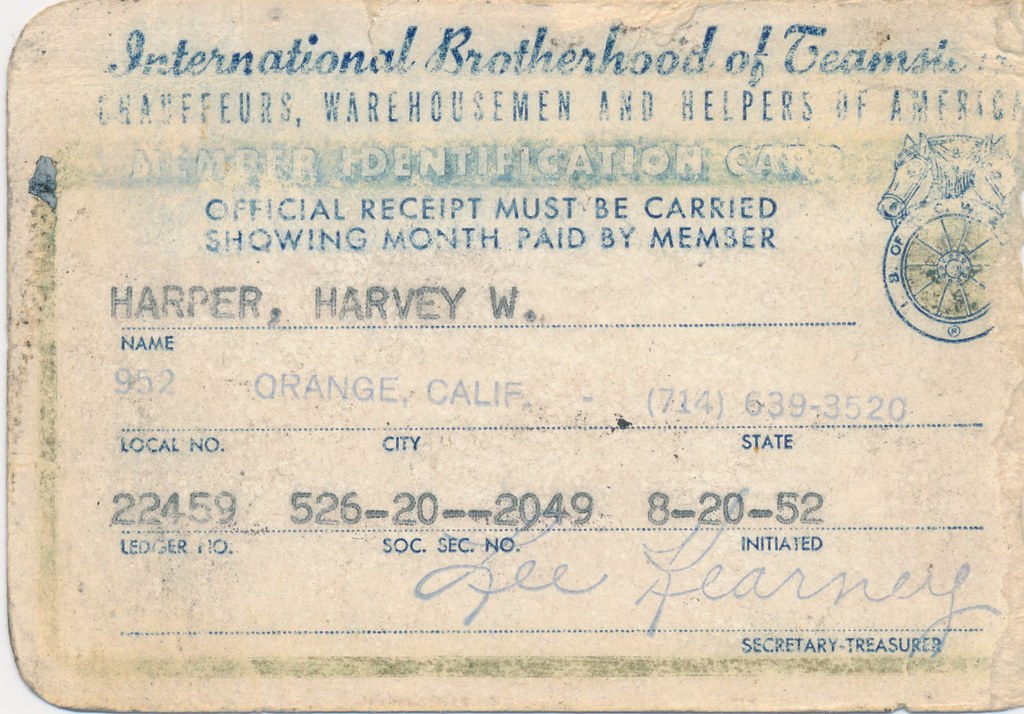
It's one (true) thing to say that American union membership is down - that's a quantifiable, objective proposition. It's another to say that American unions are weak - and contrariwise, that unions are getting stronger. That's a lot more abstract and harder to pin down. 1/ 

If you'd like an unrolled version of this thread to read or share, here's a link to it on pluralistic.net, my surveillance-free, ad-free, tracker-free blog:
pluralistic.net/2021/11/19/hof… 2/
pluralistic.net/2021/11/19/hof… 2/
But here's a concrete version of what it means for a union to be weak, and for it to be getting stronger: the Teamsters election, hereclutch of do-nothing, sellout lifers were ousted from their cushy offices by militant challengers who made specific, meaningful promises. 3/
For years, the 1.3-million member Teamsters has been (mis)ruled over by James P Hoffa and his cronies. Under Hoffa's leadership, the Teamsters negotiated a string of objectively terrible deals, including deals that created two-tier union members. 4/
These deals create a pool of workers who owe full union dues, but whom the union does not fully protect. They draw lower wages, have worse benefits and retire on worse pensions. 5/
Two-tier employment is how bosses break unions, by ensuring that all the members who join after a certain date don't value the union and won't fight to preserve it. 6/
The John Deere strike that just settled was fought over creating a third (!) tier of workers.
cnn.com/2021/11/17/bus…
Same with the California Kaiser nurses' strike:
kron4.com/news/bay-area/… 7/
cnn.com/2021/11/17/bus…
Same with the California Kaiser nurses' strike:
kron4.com/news/bay-area/… 7/
Smart union organizers know that two-tier employment is slow suicide. Stupid union organizers don't know this, or they don't care. 8/
The Hoffa administration gutted the union's capacity while lining its pockets - many union officers held multiple positions within the union (allowing them to draw multiple salaries), leading to chronic underperformance of core union functions. 9/
Pretty much the only thing Hoffa and his cronies were good at was suppressing militant union organizers, sidelining Teamsters for a Democratic Union and Teamsters United, and firing their members from positions of power in the union. 10/
After years of tireless organizing, TDU and TU have won a *smashing* victory in national elections - their slate is tipped to have more than 70% of the vote.
labornotes.org/2021/11/teamst… 11/
labornotes.org/2021/11/teamst… 11/
Region by region, the TDU/TU slate racked up impressive gains: in 2016, they took the South and Central regions with 57-59%; this year it was 71/72%. In the East region, they went from 43% to 75%. 12/
How did they increase that support? By promising to make the Teamsters into a *strong* union, not just a *big* union. 13/
That means organizing Amazon drivers, withdrawing support from sell-out politicians, abolishing the two-tier system, increasing UPS starting pay from $14 to $20/h, and tackling worker misclassification programs that treat "personal vehicle drivers" as "contractors." 14/
They're also killing the practice of having a single person hold multiple union offices, meaning that warehouses will get full-time division reps, rather than a hybrid division-rep/business agent. 15/
They're going to shift the emphasis to local organizers, rather than shipping organizers around the country - building organizing capacity on the ground, everywhere, that will stay in the shop after the campaign is over. 16/
Under the presidency of Sean O'Brien, the Teamsters promise that they'll organize waste workers in the south, and expand grocery unions beyond Costco and Krogers. 17/
That's what a *strong* union looks like. It is focused on delivering material benefits to working people by organizing workers and using their combined power to shift money from wildly profitable businesses to the workers whose labor generates those profits. 18/
• • •
Missing some Tweet in this thread? You can try to
force a refresh











